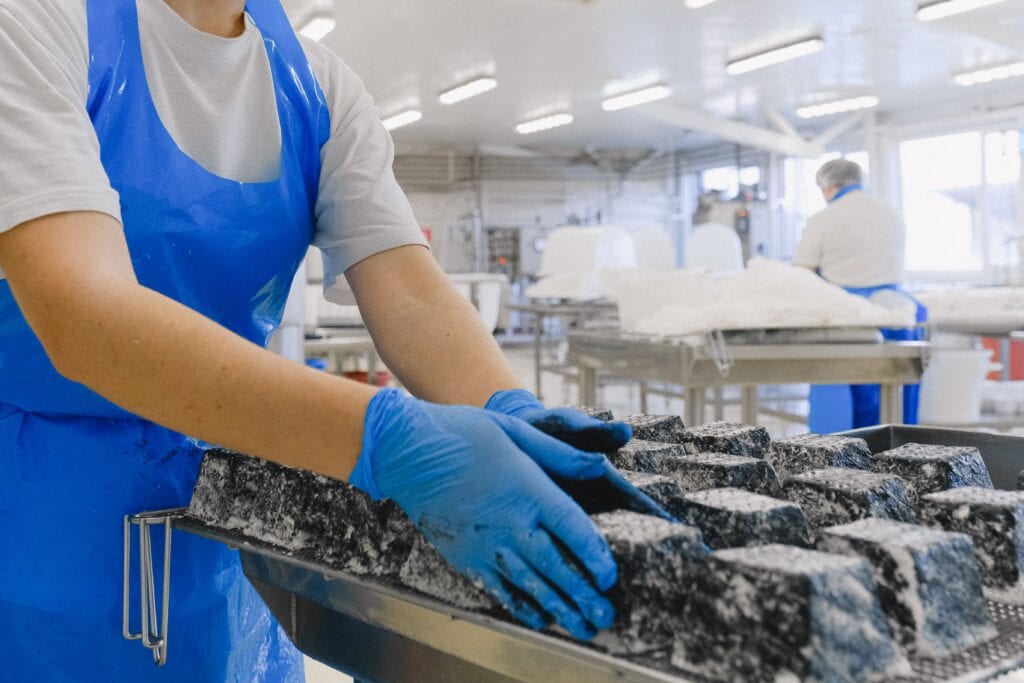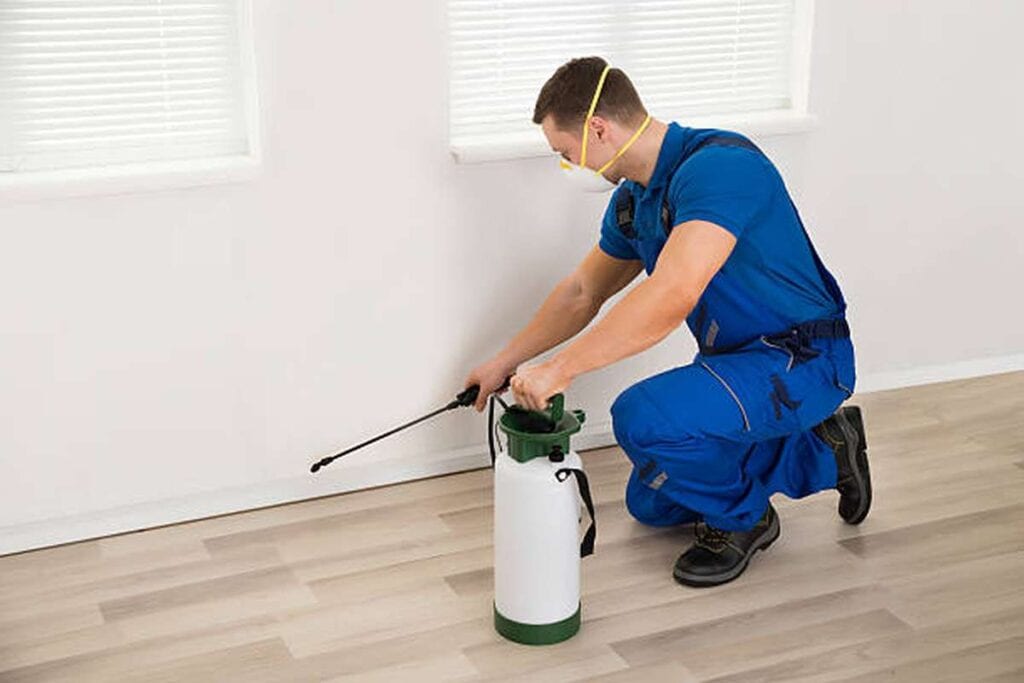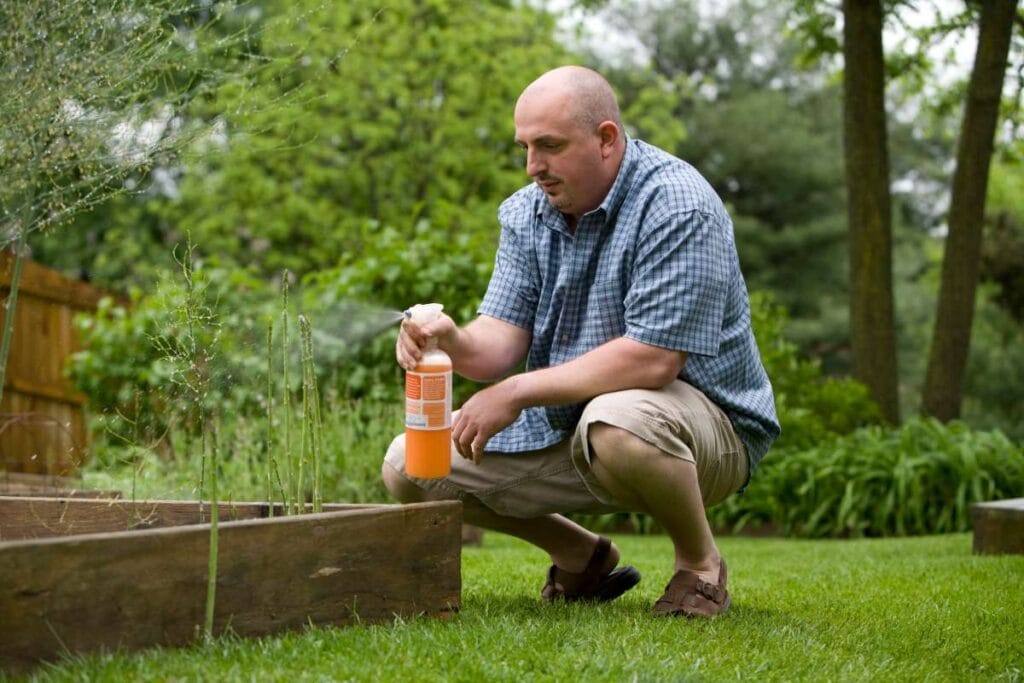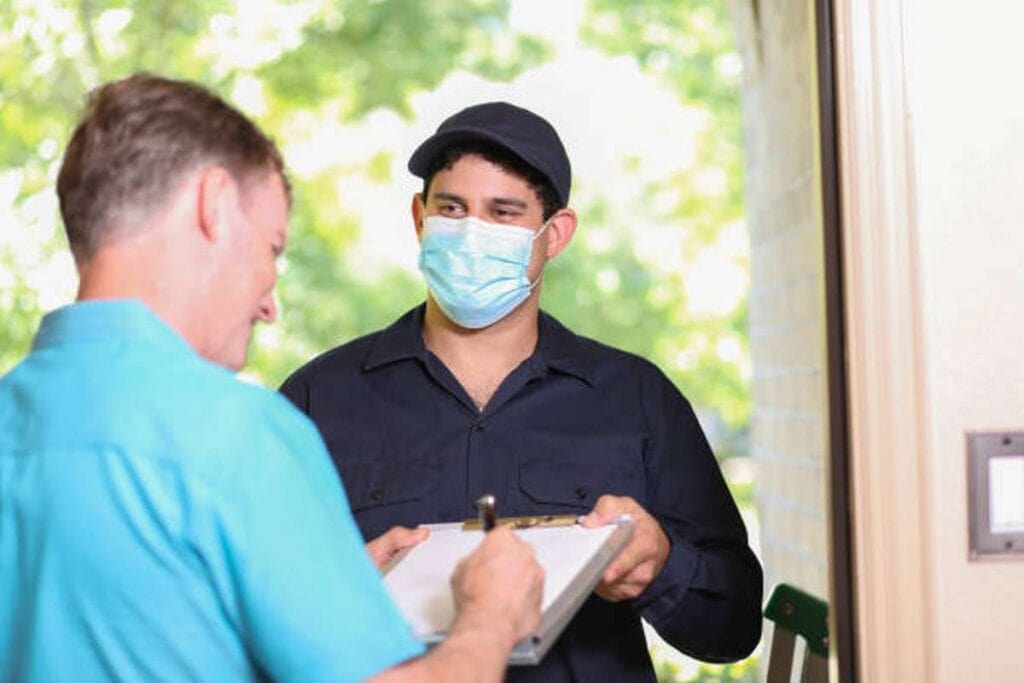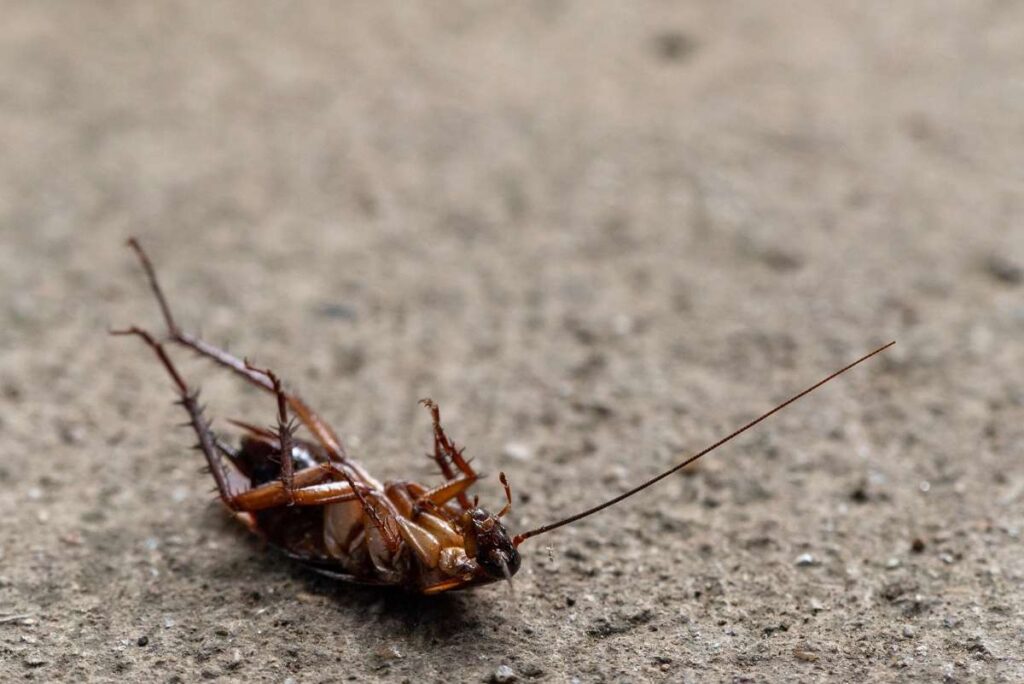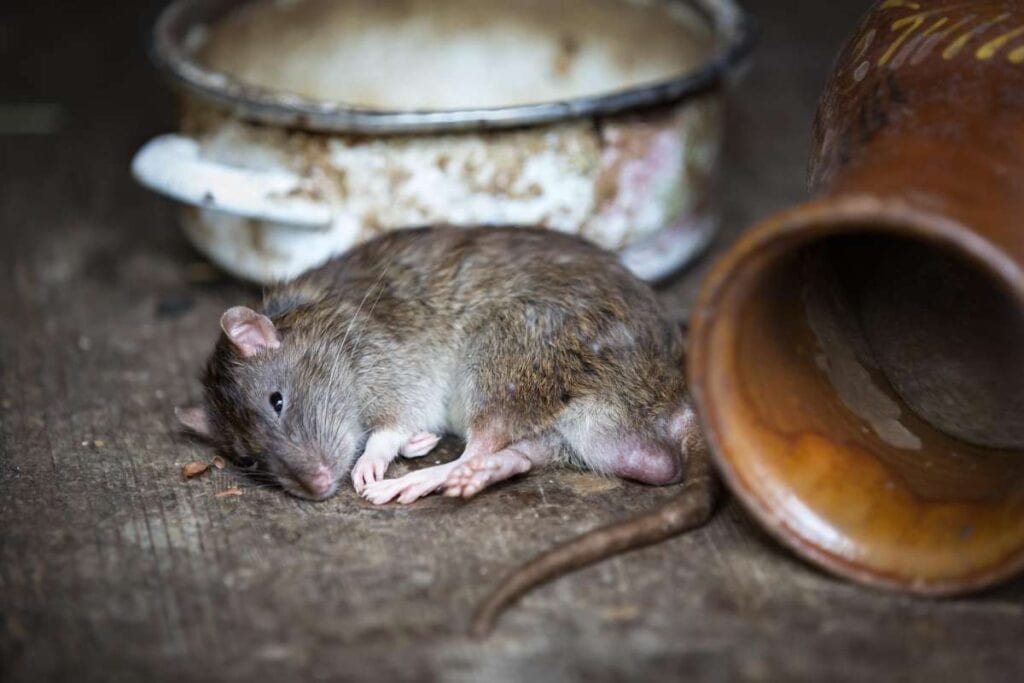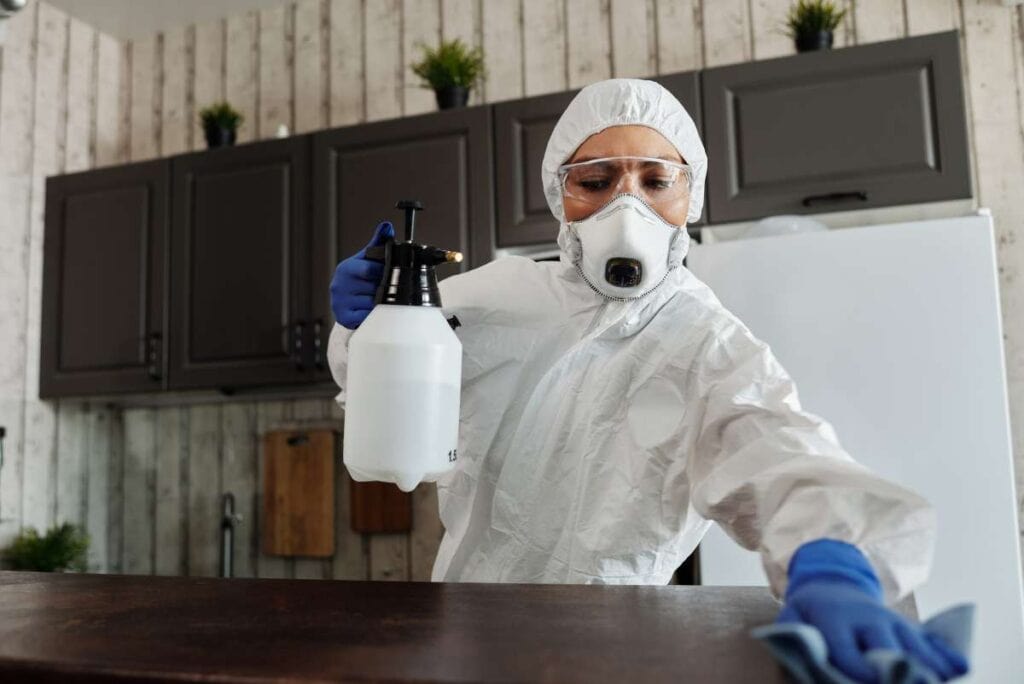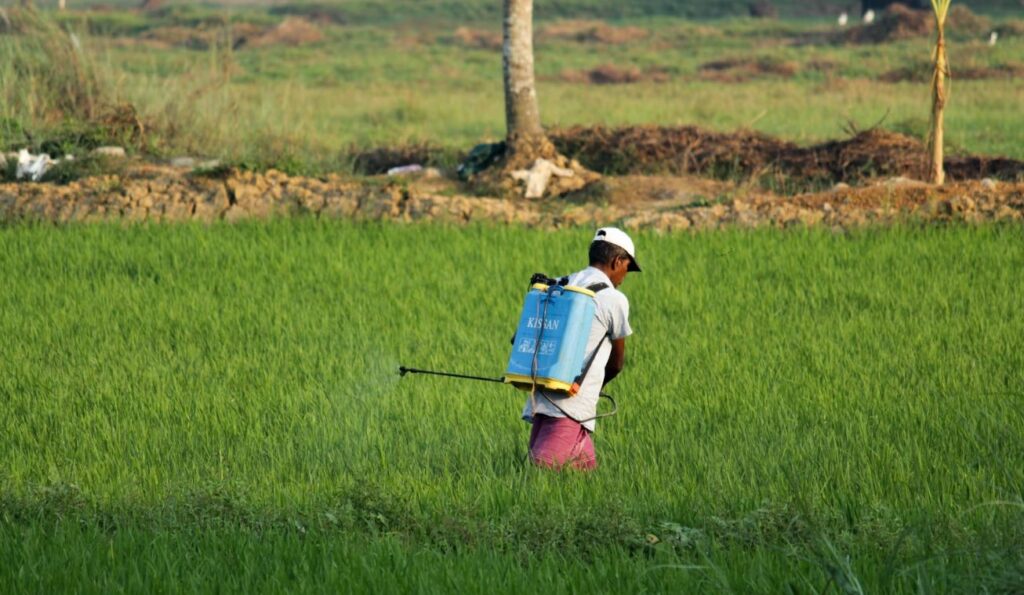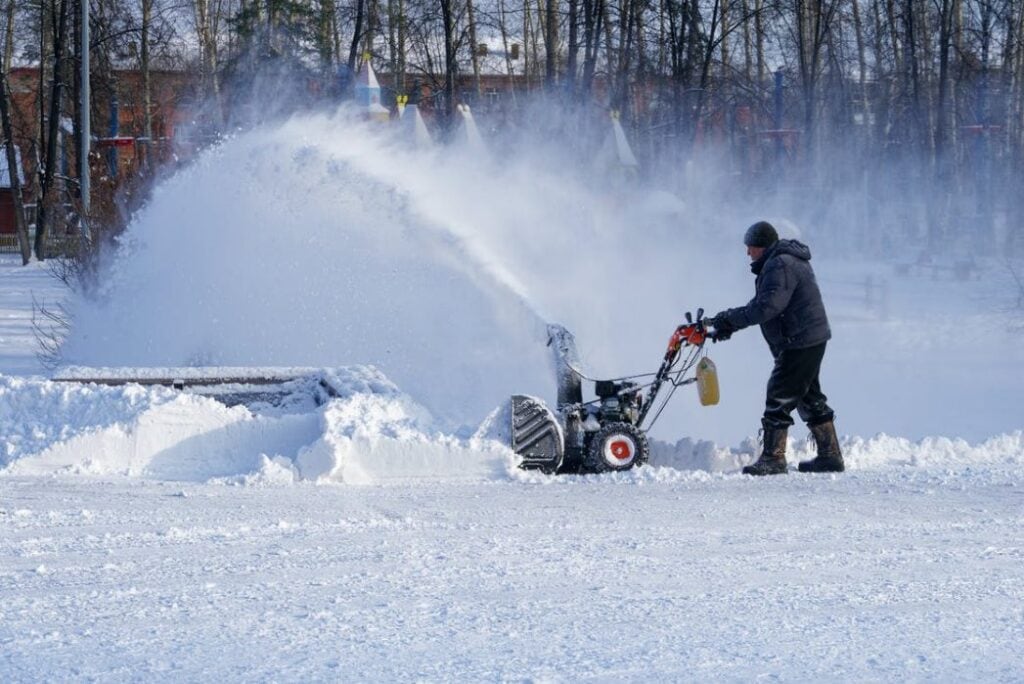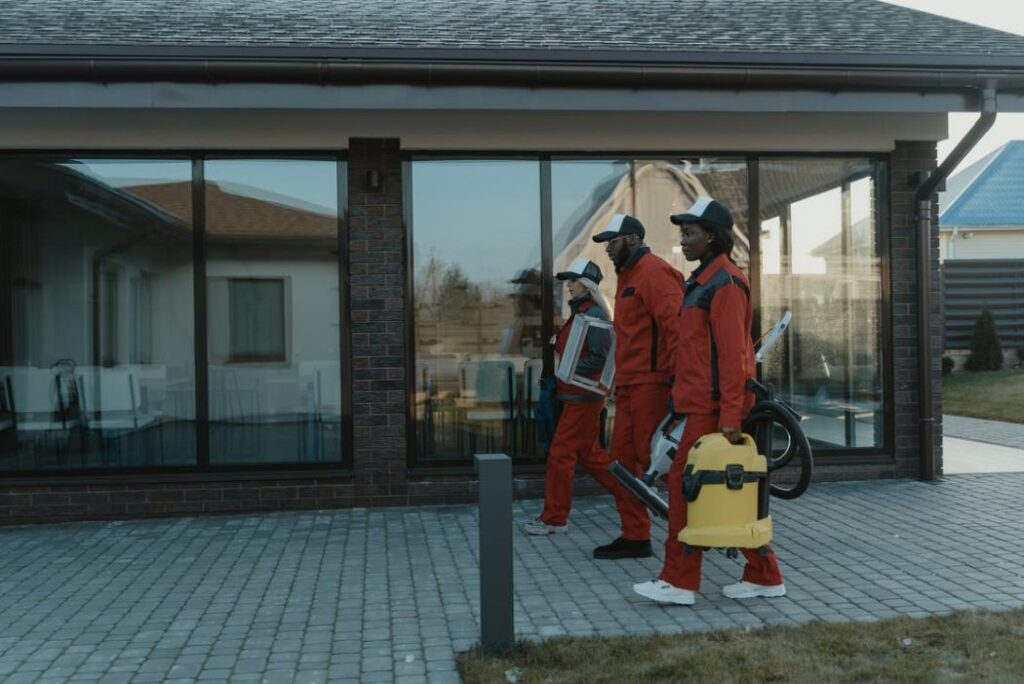Anyone working in the food manufacturing industry understands the significance of control of pests for food safety. If you don't get rid of your insect problem, it could cost you your food production licence and possibly even your business.
Insects and other pests can quickly contaminate consumer meals, soil or damage your commercial space (cables, furniture, tiles), and spread bacteria and other diseases.
To that end, it is crucial to know how to keep your company protected against pests by having the contact information of a food manufacturing pest control services provider readily available in the event of an infestation.
Food Storage Facilities Need Insect Management

Numerous organisations in the food storage sector benefit from pest control. Pest control is essential to the continued success of restaurants and other businesses in the food service industry. There are several problems that could arise for those in the sector if pest management wasn't implemented, including a less than sanitary environment, broken machinery, ineffective pest treatment, and, in the worst case scenario, the industry's closure.
Keeping these things in mind, it is imperative that establishments serving food and drink employ competent pest control measures. For the sake of their customers, they will need to pay close attention to cleanliness while they go about their task. Eliminating pests is a simple and effective way for businesses to reduce the risk of contamination, protect their equipment from pests, enhance food safety, preserve their good name, and keep customers satisfied. Keep reading to find out more.
Limit the Transmission of Diseases
When facilities fail to engage in adequate pest management and upkeep, a wide variety of pests and rodents can invade and potentially spread disease. Diseases like salmonella, leptospirosis, rat-bite fever, and similar conditions can be transmitted by rodents. However, other bugs like cockroaches may also spread disease in a similar fashion, whether through bites, the transmission of salmonella or E. coli, or the transmission of a virus that causes gastroenteritis. These pests' droppings can contaminate food, which is dangerous for both employees and customers.
Pest control services are essential for preventing the spread of disease in buildings. Having a local exterminator's technicians check up on your property every few months or once a quarter is a good idea. This will prevent any potential pest infestations in food storage areas and ensure that your food is safe to eat.
Restaurant goers and grocery store shoppers alike may be assured that their food is in good hands when it comes to preparation, storage, and transport.
Prevent Damage to Assets and Equipment
Kitchens and other food processing facilities house a wide variety of appliances. Equipment can include things like stoves, ovens, microwaves, steam tables, microwaves, electric grill, fryers, and conveyor belts. Damage to these equipment can occur when a pest problem isn't treated and insects or rodents become lodged in the machinery's inner workings.
Repairing expensive kitchen equipment after it has been severely damaged might put a halt to a restaurant's daily operations. Without proper training, people aren't capable to see signs of pest infestation or removing decaying vermin from machinery.
In addition to regular servicing, effective pest management is essential for keeping kitchen appliances in good working order. It is a cost-effective solution because businesses will not have to spend as much money on repairs and replacements.
Avoid Ruining Your Company’s Image
The food service business regularly receives negative feedback from customers. They frequently vent their frustrations online, whether it's through negative reviews, social media posts, or even the sharing of their own bug footage.
A negative review of your restaurant can leave a lasting impression on customers, so it's important to take the time to do a thorough pest inspection if you care about your restaurant's reputation.
Getting rid of bugs can help ensure they don't show up in unexpected places across your building. If your establishment is spotless, clients will not feel the need to take drastic measures to damage your reputation because a rodent scurried under a table or a cockroach leg accidentally made its way into their meal.
Preventing Business Closure
If you disregard pest control, you run the risk of having your business closed. However, keep in mind that this is quite rare. In many cases, these closures are directed at businesses whose management has been lax in ensuring a clean and secure environment for their employees and consumers.
Consistently employing pest control services is an important maintenance technique for your building. It is not sufficient, for instance, to have a single sanitation inspection of a food processing factory or eating establishment. Instead, make future plans to call a pest control service so that your eatery doesn't attract unwanted guests.
How to Manage and Prevent Pests in Food Processing Line
Always Practise Proper Hygiene and Diligent Housekeeping
The first and most important step in maintaining food safety against pests is maintaining a clean environment, especially in the hard-to-reach places like under huge pieces of equipment or in the nooks of your business. Typically, these are the entry points used by pests to infest a firm.
Ingredients, raw materials processing and storage facilities, machinery, packaging materials, storage boxes, vehicles, food products, and workers can all be jeopardised by biological, chemical, and physical contamination if buildings aren't maintained and cleaned regularly.
Pests can be discouraged from settling in an area by keeping it clear of debris, food sources, and breeding grounds, all of which can be achieved through regular groundskeeping and the removal of weeds and other vegetation.
Maintaining sanitary conditions in the kitchen and on the machinery used to make food entails strict adherence to cleaning protocols at every stage of the process.
Everything from raw materials to ingredients to packaging materials to finished goods is kept in a safe and sanitary warehouse.
Products intended for cleaning and disinfecting are used correctly and stored out of the way to avoid contaminating food and packaging.
Keep an Eye Out for Areas Where Pests Are Likely to Invade
Since pests are attracted to and thrive in food storage places, you should check these areas multiple times each day if at all possible.
In order to avoid problems with contamination, disease, and insect harborage, proper waste management is crucial. The following are examples of waste management provisions:
- Set up off-site waste storage and disposal systems that are efficient and in line with regulations;
- The facility should have a waste storage capacity commensurate with its needs;
- Create efficient systems for collecting trash in the areas of receiving, storing, and food preparation;
- Bins for garbage are built from materials that won't attract pests like flies or rodents or birds, and they're made specifically for storing garbage.
- Clean out the garbage containers and other trash storage locations regularly;
- All regulations pertaining to waste disposal are strictly adhered to.
Ensure That Any Spills Are Cleaned Up as Soon as Possible
Aside from the fact that this is the hygienic thing to do, it would also ensure that your company does not draw in any kind of pests of whatever kind.
Put Perishables in Airtight Containers
There is no downside to taking precautions to keep bugs out of your dry goods and food components. For this reason, it's crucial to seal opened food packages, keep them off the floor, and regularly inspect their packaging for signs of damage. A helpful hint is to use containers that have lids and are out of reach of bugs.
Ensure That Pests Have No Access to Any of Your Company’s Food or Ingredients
All doors leading into your food preparation and storage rooms, for instance, should have full-height, pest-proof door seals installed, fitting snugly into the door frames.
Brush strips at the base of the doors and fly screens in the windows are two easy ways to accomplish this.
You can take extra precautions to prevent unauthorised entry to your food production facility by sealing off any openings surrounding the pipes, wires, or drains that serve the space.
Because of their small size, rodents and insects pose a particular threat because they may squeeze through openings as narrow as a pencil. And it includes those fissures in the floor, ceiling, or walls as well.
Eight Procedures Ensure Hygiene and Safety
There are eight stages to the process to ensure cleanliness and safety are upheld and that any lessons learnt are incorporated into future improvements.
Responsibility - assign a competent individual the task of carrying out the necessary procedures;
Develop - plan out how a programme will be implemented, tracked, and adjusted as needed;
Document - create the paperwork that outlines the processes, the steps that must be taken to implement them, and the monitoring tools that will be used;
Train - staff should be educated on how to monitor and document activities as per the documentation's instructions.
Implement - following the documented procedures is what should be done in practise.
Monitor and Record - procedures can be proven to be followed with the help of accurate monitoring and recording;
Verification and Audit - when a system is in operation, verification ensures that it is performing as expected, that all necessary documentation is being followed, and that all necessary skills are current. Measures including validating crucial control points and regularly calibrating monitoring, sampling, and testing equipment are employed to achieve this goal. Staff members or contractors from an outside organisation with the necessary expertise should perform this task.
Review and Update - it is imperative for upper-level management to conduct periodic reviews of all programmes to evaluate their efficacy, create procedures to enhance processes, provide adequate resources to make any modifications, and keep detailed records of the entire procedure.
How to Keep Your Pest Control Program Running Smoothly

Inspection
To ensure the success of an IPM programme, scheduled inspections must be performed often. Storage facilities, trash cans, and loading docks are just some of the places that need to be checked on a regular basis to prevent pest infestation. Talk to an IPM expert about where pests might be getting in, what they might be eating, and where they might be getting water.
Safety Precautions
If you want to find out where your IPM programme is lacking, do regular inspections, but don't wait for the problem to escalate before taking corrective action. Requiring inspections and fixes on a frequent basis is a great preventative measure. These inspections allow for the complete sealing off of the building to prevent any pests from entering. The danger of infestation can be lowered by being meticulous about personal hygiene.
Identification
There is a wide variety of pests, and each has its own unique traits. With proper identification, they can be eradicated with minimal collateral damage. Before beginning any kind of treatment, your IPM expert will need to determine what kind of pests you're dealing with.
Analysis
Once you've established what's now lurking in your building, you'll want to investigate how and why it got there. If we know the answers to these questions, we can select the most effective methods of control.
Treatment Options
Focus on non-chemical methods, such as trapping and exclusion, before resorting to chemical methods when establishing an IPM. Only after all other methods did not work or are unsuitable will chemical methods be used, and even then only in the safest possible amounts. By prioritising non-chemical treatment methods, you can be sure that your IPM strategy is effectively eliminating pests without jeopardising the integrity of your food safety procedures or workplace environment.
Observations
The process of pest management requires ongoing vigilance. Facility modifications and specific operational adjustments can protect against pest invasions and eradicate existing infestations. The best way to find problem areas and implement effective preventative measures is for your personnel to collaborate with pest control experts.
Documentation
The fate of your food facility may hinge on the results of the food safety auditor's inspection. Twenty percent of your overall score may be attributable to your pest management, so it's crucial that your IPM programme exhibits audit time. One of the primary things an auditor will look for is an up-to-date record of the pest control paperwork. Pest activities reports, trap layout plans, applicator license, approved pesticide lists, service reports, extent of service, and corrective action reports are among your essential documentation.
Conclusion
Insects and other pests can quickly contaminate consumer meals, soil or damage your commercial space. Pest control services are essential for preventing the spread of disease in buildings. Eliminating pests is a simple and effective way for businesses to reduce the risk of contamination. Pest control is essential for keeping kitchen appliances in good working order. It is a cost-effective solution because businesses will not have to spend as much money on repairs and replacements.
If your establishment is spotless, clients will not feel the need to take drastic measures to damage your reputation. Consistently employing pest control services is an important maintenance technique for your building. Ingredients, raw materials processing and storage facilities, machinery, packaging materials, storage boxes, vehicles, food products, and workers can all be jeopardised by contamination if buildings aren't maintained and cleaned regularly.
Design, develop, implement and train pest control experts are key to ensuring the success of an Integrated Pest Management Programme (IPM). An expert can help you determine what kind of pests you are dealing with, as well as how best to deal with them.
Content Summary
- Anyone working in the food manufacturing industry understands the significance of control of pests for food safety.
- It is crucial to know how to keep your company protected against pests by having the contact information of a food manufacturing pest control services provider readily available in the event of an infestation.
- Pest control is essential to the continued success of restaurants and other businesses in the food service industry.
- Keeping these things in mind, it is imperative that establishments serving food and drink employ competent pest control measures.
- Pest control services are essential for preventing the spread of disease in buildings.
- Kitchens and other food processing facilities house a wide variety of appliances.
- Repairing expensive kitchen equipment after it has been severely damaged might put a halt to a restaurant's daily operations.
- In addition to regular servicing, effective pest management is essential for keeping kitchen appliances in good working order.
- The food service business regularly receives negative feedback from customers.
- A negative review of your restaurant can leave a lasting impression on customers, so it's important to take the time to do a thorough pest inspection if you care about your restaurant's reputation.
- Getting rid of bugs can help ensure they don't show up in unexpected places across your building.
- If you disregard pest control, you run the risk of having your business closed.
- Consistently employing pest control services is an important maintenance technique for your building.
- Instead, make future plans to call a pest control service so that your eatery doesn't attract unwanted guests.
- Maintaining sanitary conditions in the kitchen and on the machinery used to make food entails strict adherence to cleaning protocols at every stage of the process.
- In order to avoid problems with contamination, disease, and insect harborage, proper waste management is crucial.
- Clean out the garbage containers and other trash storage locations regularly; All regulations pertaining to waste disposal are strictly adhered to.
- A helpful hint is to use containers that have lids and are out of reach of bugs.
- All doors leading into your food preparation and storage rooms, for instance, should have full-height, pest-proof door seals installed, fitting snugly into the door frames.
- Brush strips at the base of the doors and fly screens in the windows are two easy ways to accomplish this.
- You can take extra precautions to prevent unauthorised entry to your food production facility by sealing off any openings surrounding the pipes, wires, or drains that serve the space.
- And it includes those fissures in the floor, ceiling, or walls as well.
- There are eight stages to the process to ensure cleanliness and safety are upheld and that any lessons learnt are incorporated into future improvements.
- To ensure the success of an IPM programme, scheduled inspections must be performed often.
- If you want to find out where your IPM programme is lacking, do regular inspections, but don't wait for the problem to escalate before taking corrective action.
- Requiring inspections and fixes on a frequent basis is a great preventative measure.
FAQS About Pest Control
Controlling pests is a crucial part of farming. Horticultural operations can be negatively impacted by pests, which can reduce crop yield, quality, and ultimately, marketability. Any organism, whether animal, insect, weed, or disease, that causes damage to a harvest is considered a pest.
When it comes to protecting your health, hiring a professional pest control service is your best bet. Ticks, spiders, and cockroaches are just some of the pests that can spread bacteria and diseases. Lyme disease, E. coli, and salmonella poisoning are just a few examples.
Insects and other pests are not just an annoyance but also a health hazard, highlighting the significance of pest control. They can spread sickness and bacteria that can make you sick if you eat it, destroy your property (including electrical lines), and attack human food.
The Inspection. High-quality pest control services can't be provided without first conducting a comprehensive inspection, which gives the PMP crucial data for making informed recommendations and developing an efficient treatment strategy.
As a general rule, you should witness a marked decrease in insect activity within two days. The length of time required to achieve long-term success will vary depending on the type of pest we are trying to control and the methods we decide to employ.

